Stories
ABOUT EACH AGGIE MATTERS
Together, we are creating a campus where Each Aggie Matters. And here at the Vet School, we are taking a stand to advocate for our community. See the stories below and consider adding your own pledge or personal story to the campaign.
Contact Dr. Zachary Ward at zward@shcs.ucdavis.edu to discuss adding your voice to the campaign on the Vet Med campus.
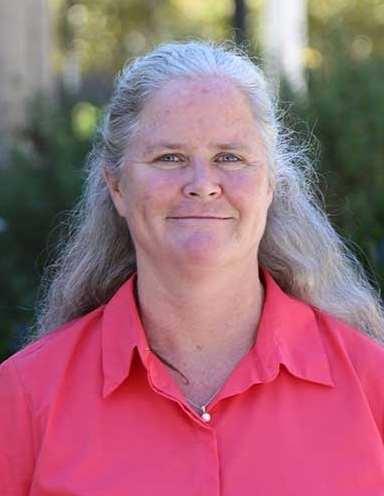 Barbara B.
Barbara B.
I have suffered from depression since I was a teenager although I didn’t know what it was back then. All I knew was that I was sad and would cry whenever presented with even the slightest challenge. My parents knew something was wrong but thought they had found the solution when they identified a trigger in family discussions of a possible impending move. Although the symptoms waxed and waned throughout my teenage years they became worse in my later 20s when I was in the middle of my veterinary residency; a very stressful and high pressure position. I recall performing an emergency exam on a horse and crying the whole time. I didn’t know if I could ask for help and didn’t know whom to ask. I didn’t feel safe reaching out to my residency supervisors for fear of being stigmatized as lazy or a slacker. Fortunately, I had the wherewithal to find a therapist who was able to help me through this dark period and was able to complete the residency.
My depression returned during graduate school. Fortunately I was able to again seek help from a new therapist as I was living in a different city. I started on antidepressants for the first time. I was able to tell a few close friends, family, and my PhD mentor of my struggles. The outpouring of care and concern that I received from them helped to convince me that I wasn’t as worthless of a person as I feared I was and that I mattered, not just my achievements in school or career. I learned that asking for help was the courageous thing to do and that I had family, friends and a therapist who could help me find my way out of the darkness. I became educated about depression, learning about the brain chemical imbalance that left me susceptible to such episodes. I came to understand that my depression wasn’t just a lack of will or effort on my part; it is a real medical condition that is manageable and treatable. After trying several different cocktails of antidepressants, I found one that worked and helped to change my life.
Today I am living mostly depression free. Sadness and darkness return occasionally but only for a few days at a time. I still take antidepressants and most likely will for the rest of my life. I’m thankful that there are some that work for me. I do other things to help: I talk to family and friends regularly and tell them when I’m down, I don’t drink alcohol as it can be a depressant, I take my medications as prescribed, I continue to see a therapist who is an endless wealth of support, I try to exercise, and I do things that bring me joy like riding my horse or going for walks with my partner and dog. Most importantly I have found balance between work and the rest of my life. I get great satisfaction from career but it is my life outside of work and my relationships that help me to find my center.
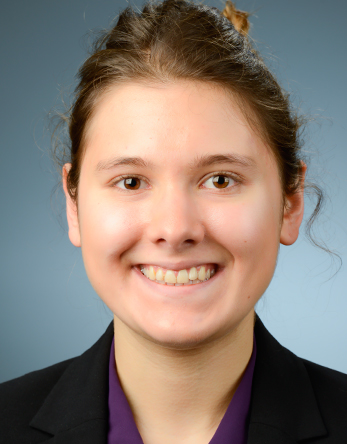 Rebecca R.
Rebecca R.
Truly, the feeling of lightness – as if a block of cement was being lifted off of my shoulders – is the only thing that comes to mind when I think back to telling my sister I had started going to therapy. The first thing she said to me was, “I’m so proud of you.” I’m writing my story because I want anyone who is struggling to have hope and understand that seeking help and opening up can truly ease up the struggle.
I self-injured for two years, starting my junior year of undergrad and continuing into the very beginning of Vet School. Self-confidence issues that have been around since probably early childhood along with a less than stellar romantic history set my mind up for a perfect storm when things were getting stressful. Self-injury was an outlet for me because I didn’t feel comfortable opening up to anyone about the pressures I was feeling: to maintain the perfect GPA, the perfect leadership roles, the perfect social life. What I am truly thankful for is the focus UC Davis Vet School has had on mental health since I’ve arrived. Beyond being grateful to the resources available, I am grateful that early on the idea began to trickle down to me that seeking help and going to therapy was not a sign of failure. Previously, I viewed my self-injury habit as something to keep hidden, be ashamed of, and work through on my own. However, I think that only led to more downward spirals that resulted in more self-injury when I couldn't fix myself. I am thankful that the focus on mental health here at Davis allowed me to see that seeking help didn’t mean that I wasn’t strong enough to overcome this on my own. It didn’t mean that I was weak and not made out for a stressful career path. What it did mean was that I was standing up for myself and my personal well being.
Therapy started as an awkward thing for me. It’s not in my nature to open up in that way, and I’m sharing my story because I want others who may feel similarly to know that getting through that hurdle is a process. Getting through any struggle with mental health is a process. I still struggle with feelings of doubt, depression, and lack of confidence. But therapy has given me tools to apply to see myself through these feelings, and to at least understand the way my mind may twists things. Furthermore, even if it felt unnatural for me to do so at first, opening up and sharing does help to set my mind at ease.
Ultimately, I hope with pledges and stories we can combat the stigma of mental illness. I hope that by sharing my story, my peers feel comfortable reaching out to someone for help when they may need it. Finally, I hope that by reading these brave stories, my peers continue to practice kindness towards others because you never know what they may be struggling with inside, no matter how put together they may appear to be.
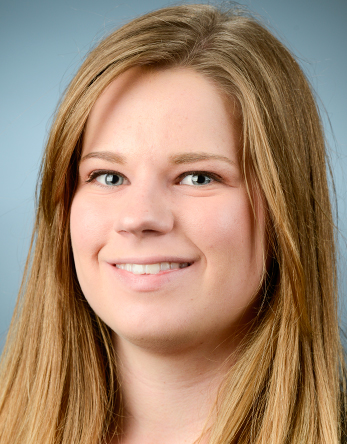 Amanda S.
Amanda S.
As far back as I can remember, I’ve been incredibly image conscious. It’s gotten me to the point where I am today and I’ve been successful in several of my pursuits, but it’s also hurt me in a lot of ways. When I began to have anxiety and depression in my more stressful parts of undergrad, it made me refuse help and instead turn to other ways to try and control various parts of my life. My anxiety even interfered with my work at a veterinary hospital as a technician, I was always so afraid to fail that I would psych myself out and be unable to complete tasks that were fairly routine. I refused to go to therapy because of the stigma I thought it presented and turned to anorexia as a method of coping. My image consciousness also stopped me from speaking out about sexual assault that I was experiencing for an extended period of time. I thought saying something would damage my career and that I would experience victim blaming. After a lot of consistent care from my family and friends, I finally went to a therapist to help me with my anxiety and depression.
It’s taken a lot of time and I’ve come a long way with the help of my therapist and the practice of meditation and cognitive behavioral therapy. I know that I still have a long way to go, but seeking help gave me the strength to be more open about how I’m feeling and express my concerns with others. Now, I want to be a help to others who may be experiencing similar feelings. Whenever I’ve shared that I’m not confident in whether I’ll be a good veterinarian, I’ve always come across people who share those same sentiments. A lot of us are in the same boat. It’s time that we were honest with each other, and I want to begin to facilitate that. We’re human beings; we have limits, and that is completely okay. It’s okay to ask for help. It isn’t weakness. In all honesty, it takes a lot of strength and maturity to reach out.
For those who feel like they’re alone, I want to challenge you and say that you aren’t. As I’ve taken the steps to share the more painful parts of my story, I’ve found that there are a lot of people who have been in similar situations and struggles. We’re in this together, and I hope that anyone who feels isolated or unimportant will believe me when I say this: there is a community here for you and your story matters.
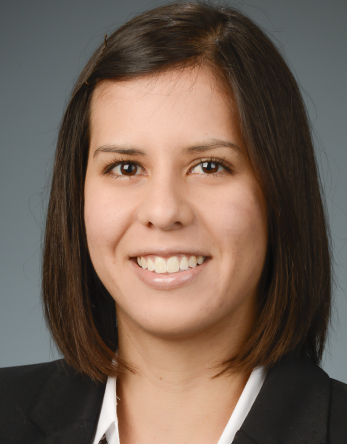 Andrea P.
Andrea P.
When I was 19 and a sophomore in college, I was deeply depressed. At that point in my life, I couldn’t find the words to ask for help, so one night I showed the cuts on my leg to a close friend. The next morning, we walked into the counseling services building at my university. Therapy helped me understand that my depression stemmed from the self-judgment I felt regarding another issue I was coping with - a severe phobia I had had since early childhood.
Social stigma surrounding mental illness is so pervasive in our culture that I could sense the “hush” surrounding this issue when I was 7 years old. I was too young to understand what my phobia was when it first started; all I knew was that I wanted to seem as normal as possible. I had never heard anyone talk about the kinds of things that I was feeling, so I concluded that they should not be talked about. For me, the stress of hiding what was going on inside of me was equal to, if not greater than, the stress that resulted from my phobia. I hid what was going on so effectively that no one in my family knew anything was wrong. I was in enough emotional pain to make myself physically ill for a period in middle school, but despite the doctor repeatedly asking if I was under any stress, I refused to say a word about my phobia. When I think about why tearing down the stigma surrounding mental health is important, I think about my 12 year old self choosing physical and emotional pain over the social pain of exposing my phobia. My fear festered in silence, and with each passing year I grew more and more certain that I was deeply broken, that social acceptance would always hinge upon my ability to hide my thoughts and feelings, and that it was my fault for creating an irrational fear in my head.
I am currently 25 years old and have been in and out of therapy for 6 years. I no longer believe that I am broken, or that my fear was something that I made up. I understand my fear, how it happened, how it persisted, and why it affected me the way it did. The self-awareness I developed in therapy began to free me from the shame I had felt for so long. I look back on all of the years I spent thinking that life would always have to be painful for me, and I wish with every fiber of my being that I had sought help sooner.
Recovery from depression and anxiety is very possible, but I cannot say that it is easy or painless. For me, it meant giving up my (unhealthy) coping mechanisms, putting myself in situations that forced me to confront my fear, and becoming more open with friends and family about my deepest, most shameful secret. As it turns out, none of the terrible things that I had always imagined would happen after people found out about my phobia have ever happened. Every person I have confided in has been kind, curious, and non-judgmental. Of course, no one is perfect, and even people with the best intentions cannot always anticipate how to be sensitive and supportive regarding my fear. These missteps are opportunities for myself and for others to gain a deeper appreciation for how diverse each person’s inner experience is, and how to be compassionate towards each other even when we have lived our lives from completely different perspectives.
I am thankful for the perspective I have gained through coping with mental health issues. I spent my life being sharply aware that what was going on inside of me was so different from what I presented to the world. It taught me not to make assumptions about what is going on inside of those around me. It taught me that we are all limited by our own experience, and none of us can claim to understand every hardship or trauma that exists. We often confuse “being understanding” with “insisting that we understand,” but these two things are not the same. We need to forgive ourselves and others for these limitations in understanding, and find the patience needed to respect the validity of experiences to which we may not be able to relate.
I have several reasons for wanting to share my story. One is the hope that it will help those who are suffering to find the same words that alluded me when I was at my lowest - the words to ask for help. Another is that my story will help those who are not suffering to understand how real and damaging the stigma surrounding mental health is, and how desperately we need to start rejecting the “hush” that has been accepted for so long.
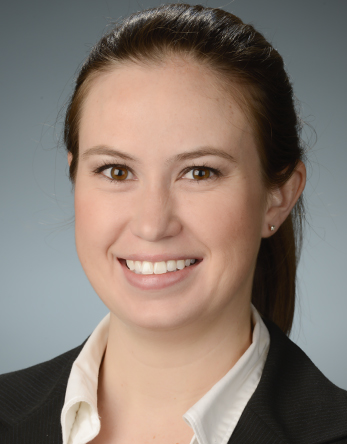 Natalie C.
Natalie C.
I have dealt with depression my whole adult life, and I have realized that a diagnosis of depression doesn’t have to be a shameful secret. Rather than being embarrassed, I have learned to think of my diagnosis as a tool for building a more positive framework for my life. Being comfortable sharing my mental health struggles with friends and family has made me realize that a lot of people struggle with these same things. Some of the most valuable suggestions and supportive words have often come from discussions with other individuals who have had similar experiences. Learning to be vulnerable and open up to others has also helped me find a network of encouraging, supportive individuals who help me get back on track when I am feeling down. For me, having a support system has been one of the most important parts of managing my depression.
Living with depression has also taught me that there is no one treatment plan that helps every individual, and individuals may need different treatment options throughout their lives. Finding what treatment options are effective for you is a dynamic and sometimes frustrating experience, but I believe it is a worthwhile and rewarding endeavor. If one therapeutic approach doesn’t work for you, don’t give up. You deserve to prioritize your own mental health and commit to finding a treatment plan that helps you.
Seeking treatment for my depression has allowed me to be more successful than I would have ever dared imagine. I still struggle with symptoms from time to time, but now I have effective strategies to combat my negative thoughts and feelings so that they aren’t ruining my life. Before getting treatment, my depressive episodes would last weeks, or months, where it was a struggle to even get out of bed and make it through the day without crying. Now, I still have episodes of depression, but they only last a day or two. Making my mental health a priority allows me to pursue my personal and professional goals and to develop and maintain positive relationships with others. My only regret was not seeking help sooner.
We are so fortunate to have so many opportunities to get help and support here on campus, and I encourage you to take advantage of these amazing resources. If you don’t know where to start or are hesitant to go alone, reach out to me, a friend, a classmate, or one of the faculty mentors on this site – we are all here to help and support one another!
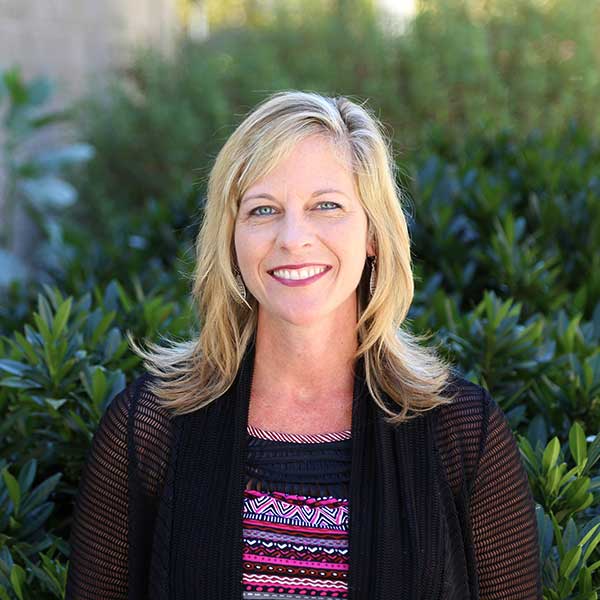 Janel L.
Janel L.
Let me just start out by saying that I’m a worrier. I worry about the safety of those close to me. Additionally, I internalize it when unfortunate things happen to other people, and I also worry about my own health. I was (notice the past tense here) a bit of a perfectionist – the type of person who believed I could and should be able to “do it all” which added extra pressure to all that I was balancing. I have always worked full-time and aspired to do everything I could for the colleagues and students I worked with as well as the family and friends that I loved. As time went on, balancing everything became a challenge. However, I wasn’t the type of person to complain, give up, or even ask for help, which meant I kept a lot of emotions inside. I wanted everything to always be okay, avoided conflict, and appeared strong. This “perfectionist” approach, and my tendency to over worry about things, took a toll on me and led to something that I now know is anxiety. It seems that people don’t really talk much about anxiety and how debilitating it can be in one’s life. It’s different for everyone in how it makes them feel, but it is real and is actually quite scary at times.
Through some ups and downs, I was lucky enough to find a wonderful doctor who listened, understood me, and cared. He was the first person to tell me that all the medical ailments I thought I had were actually stemming from anxiety. He told me I wouldn’t die from anxiety, and that I just needed some help to come to grips with what it was and gain skills to manage it. After a bit of coercing, I finally agreed to take antidepressants and go to counseling (neither of which I wanted to do at the beginning). My counselor was really wonderful; he helped me to see things differently, and he gave me tools to manage my anxiety. Over the course of many months, my anxiety was significantly reduced. I was able to stop the medication, and I had completed my counseling.
I still worry too much and have anxiety…I probably will always worry too much and have anxiety. However, by reaching out for support, I have learned how to recognize it, manage it, and in most cases overcome it. I am happy, healthy and equipped to handle the challenges of life.
As the Director of the Career, Leadership and Wellness Center for the School of Veterinary Medicine, it is my sincerest hope that this important ‘Each Aggie Matters’ campaign helps many students, faculty and staff.
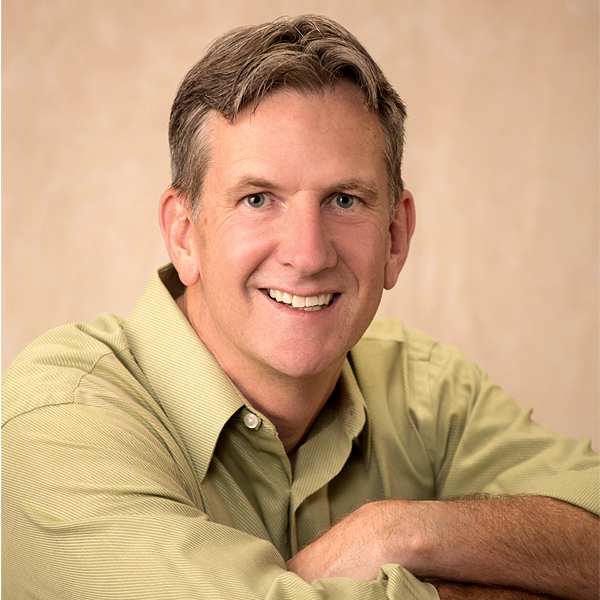 Jim C.
Jim C.
I grew up in a household with closely kept family secrets, including my mother’s alcoholism. I thought things would improve after my parents’ divorce, but that didn’t prove to be the case. My mother died when I was in veterinary school at U.C. Davis. I had a hard time dealing with these issues on top of the pressures of undergraduate and professional school. At times I felt lost and hopeless. Thankfully, I reached out to friends for support and sought out professional counseling, which was very helpful.
For many years I enjoyed my roles as a veterinarian, practice owner, husband, father, and friend. Despite my outward success, however, I began to struggle with depression. Rather than seeking help, I tried to apply the same strategy that had worked for me in the past - "suck it up and move on.” It took me nine long months to finally admit that I needed professional help. Once I accepted that, things started to improve, though there were still ups and downs. The combination of counseling and medication, along with my own effort to learn meditation and improve my life balance, helped me to recover. I’m grateful to the doctors and counselors who helped me and to my family and friends for sticking by me.
I’ve been off medication and free of depression for about 10 years now. I’ve learned to find more balance in my life and to pay more attention to caring for my own needs. I’ve avoided the pitfalls of alcoholism and drug addiction and have strong positive relationships with my family and friends. I love my work and my time off. Looking back, I’m grateful that I didn’t give in to despair or to the fear of asking for help. Mental illness is not a weakness, it’s a disease. As a doctor myself, I should have recognized that a lot sooner.
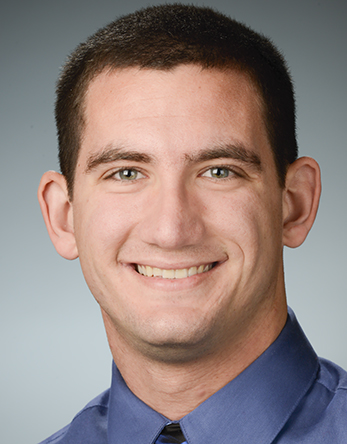 Spencer F.
Spencer F.
Towards the end of my senior year in high school, I got the devastating news that my childhood best friend, Hayden Meier, had been hit by a car and was pronounced brain dead. After about a week, his family made the decision to take him off life support, and he passed away. On top of the intense pain of this loss, I had learned about his death 9 months after his passing. This hurt me the most. Not being able to say good-bye or see him one last time caused so much pain in my life that I became severely depressed.
In high school I did not have many friends, and I was not close enough with family to even admit something was wrong. In reality, I ended most of my days by crying. Although I know many of the people in my life would have wanted to help, I truly believed they couldn’t do anything and went on alone. I blamed myself for not being there for Hayden, and I didn’t see a light at the end of the tunnel.
When I started college, things changed, and I quickly made friends. I was part of a community that made me feel safe and for the first time since Hayden’s death, I shared what I had been through with another person. Finally, I saw a light at the end of the tunnel and had hope that the depression would go away.
Hayden’s family had his organs donated, and in death, he saved the lives of 4 other people. I couldn’t believe it; I actually found something good that came from such a horrible situation. From then on, I’ve told myself that if I could find positivity in that, I could find positivity in anything. Surviving depression has put my life into perspective. If I could not just survive, but come out stronger from losing a best friend, I could handle anything life throws at me. Wasting energy by becoming overly upset about getting a bad grade on a test, losing a wallet, or breaking a phone just didn’t seem worth it to me anymore. I have been depression-free for about 5 years now. I have surrounded myself with people I can trust and who offer great support.
From my personal experiences, I want to be a resource to other who may be going through something. I want them to know they can talk with me without any fear of judgment. As much as the depression hurt, looking back, it was a period in my life that has defined me and changed me for the better.
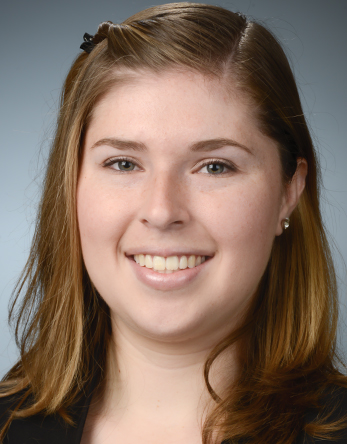 Cileah K.
Cileah K.
When I made it into vet school, I was really looking forward to the life-long connections I would make with my classmates. Although I have made a couple of amazing friends, this has actually been one of the most difficult things for me to navigate so far in the program. I have anxiety in many social contexts and over the past two years, I have had more negative thoughts about myself than ever before. It is very hard for me to be able to put myself out there. I have anxiety when it comes to attending events or talking to people in the hallways and on many occasions I have avoided going out due to my fears getting the better of me. Little things, like attending school events or joining intramurals, can be beyond scary to me. I find myself over-analyzing every interaction I have with people and usually conclude in my head that I acted embarrassingly or said something weird or awkward, which makes it even harder for me the next time I try to be social. It becomes a cycle of self-sabotage that just keeps going and it’s hard to stop.
I am writing about these experiences hoping that others who may feel the same way as me will find comfort in knowing that they are not alone. Writing this story helped me step outside of my comfort zone, and it makes me want to commit to addressing this issue more fully in my own life. I hope that reading this may help someone else feel safe and able to step out of their comfort zone too. This campaign has given me an outlet to discuss my fear and anxiety in a safe environment, and I hope that others will feel that they can discuss similar experiences with me or other classmates as we build a stronger veterinary community. I have wanted to discuss my social anxiety for a while. I attended an informational meeting about the Each Aggie Matters campaign and in seeing how open and caring everyone was about the topic, I finally had the courage to take the first step towards improving my own mental health. I hope that this story can help to do the same for my classmates as attending that meeting did for me. Writing this is definitely not a quick fix, but it has helped me see how my anxiety and fears are often unwarranted. I plan to keep working to try to address these issues. If anyone reading this wants to talk about their own experiences more, I am happy to listen :)
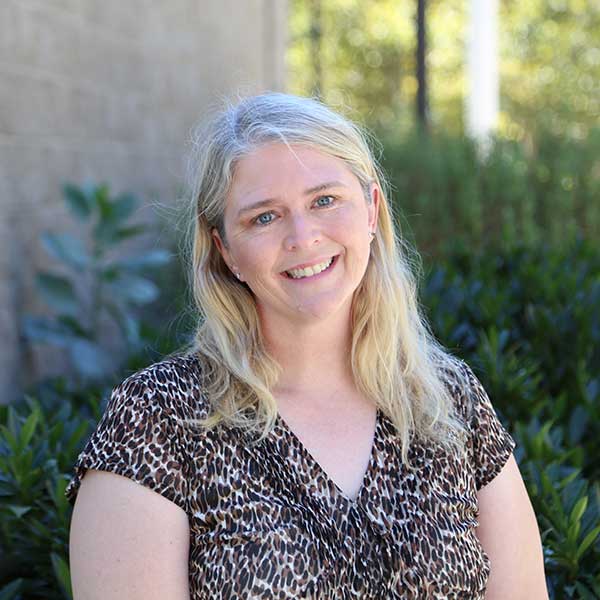 Melissa B.
Melissa B.
I lost two of my colleagues this past year. One to murder, Whitney Joy Engler, and one to suicide, Dr. Sophia Yin. From all outward appearances Dr. Yin was successful, happy, and dedicated to her profession. Internally I can’t even imagine the amount of pressure that she was under, her drive to perfection, believing that her only escape was her final decision. Whitney’s death affected me in a more personal way. She was one of my veterinary student mentees, with whom I met with just hours before she was taken from this earth. Often I think of where she would be now, what good she would be doing for animals and their owners.
Emotional and mental well-being is imperative for student well-being. Veterinary students have mounting pressures placed upon them during their veterinary school career and beyond, external as well as internal. External pressures include the obvious of learning and applying the vast amounts of information that is bestowed upon them. The financial pressures are also important to recognize. Internal pressures include sleep deprivation, emotional impacts of other life circumstances while in veterinary school, and working through fears of being good enough and prepared enough, especially when comparing oneself to their peers.
These are just some of the pressures that silently add to their stress. Appropriate work-life balance is crucial. We all understand that life can’t be balanced all of the time, but if a person continually gives to only one aspect of their life, as often happens to veterinarians, there is no ability to escape the compassion fatigue faced by those in our profession. As faculty it is vital that we understand the impact that stress, compassion fatigue, and drive to perfection has upon our soon-to-be colleagues and give them time and opportunity to cope with their stress. I personally want to offer support to students that are struggling through crisis, offering them a safe space and an open ear, and opportunities to seek further help.
 Emily N.
Emily N.
The first time I realized I needed to get some help was when I was on the brink of passing out in lecture. A wave of sympathetic drive took over my body. My heart was pounding, and my palms were sweating until everything went black. I had no idea why this was happening. So I went to the doctor. She asked if my family had a history of anxiety disorders. I had never really thought about it, but both my mom and my brother suffer from generalized anxiety. She was concerned that I, too, had been afflicted with this genetic condition, and she recommended I talk to someone about it. My first thought was that I’m way too even-tempered a person to have an anxiety problem, but she explained to me that it was more of a physical manifestation of my anxiety.
Initially, going to talk with someone sounded awful. What would we talk about? It took me a few weeks to finally make an appointment with someone because I was so uncomfortable at the thought of it and afraid it would be an awkward experience. As it turns out, I couldn’t have been more wrong.
I cried on my psychologist’s couch the whole time. I had no idea I was holding so much in. Walking out of the appointment, I felt like a weight had been lifted off my shoulders. She gave me so much good advice and really helped me understand what I was feeling. Looking back, it seems that anxiety has always been a part of my life. It just took the added stress of vet school for my anxiety to manifest in a way that became too much for me.
My girlfriend would text me saying she was leaving work. A few minutes would pass, and all I could feel was gut-wrenching fear that she was dead-- a completely irrational thought. But prior to getting help, I thought this was normal. I have always pictured the most irrational, worst case scenarios since I could remember, and I would fixate on them. I never knew this was out of the norm. I have learned exercises that help get me through these irrational thoughts including meditation. If you would have told me that meditation would help get me through my day, I would have laughed. I thought I didn't have the time or attention span to sit and think about nothing. Initially, meditation was not easy, and it took a lot of practice to get better at it.
After a few months of meditating and talking with a professional, I was feeling better, but I was still having irrational thoughts almost every day. Recently, I was referred to a new primary physician and he recommended, based on my results, that I try medication. I’m not depressed, I thought. I don't need to be on antidepressants everyday. I can deal with this on my own. However, after a few more weeks of battling these irrational thoughts, I decided to try medication. I started taking medication on New Year’s Day this year. It has only been about two months since I have started and although the side effects in the beginning were terrible, I’m very happy to say that my irrational thoughts are past me. I feel much healthier and have more energy than I thought I could.
My reservations about seeking professional help, engaging in meditation, and especially using medication have changed significantly. I am not ashamed of my anxiety, and I especially am not ashamed for seeking the help I needed. I hope that my story can break down some of the reservations others have about mental health issues. I am working through my own situation and am more than happy to share my experiences and hope that this community feels open to approaching me if they need help themselves.
 Melissa R.
Melissa R.
I’ve been dealing with depression since I was probably 12 or 13 years old. Throughout high school, I was in a relationship that was sexually and emotionally traumatic. I never told anyone, because I blamed myself for what was happening and felt ashamed. I didn't know how to talk about it. At the time, I was a really shy kid, and I didn’t know how to speak up for myself. Over time, it took a big toll on me.
By the end of high school, I felt like I was living on autopilot. My grades plummeted. I couldn’t sleep at night. I was dissociating. The depression continued on and off throughout college, and I found myself caught in some pretty unhealthy relationship patterns. At this same time, I was getting really sick and dealing with a lot of physical symptoms. I had Crohn’s disease but didn’t know it at the time. I was undiagnosed for years and the symptoms were exhausting. I hated to admit when I was feeling sick, and I hated to ask for help.
After college, I finally sought out therapy. It was the first time I had told anyone what had happened in high school. It took me about a year in therapy to be able to talk about it. I felt like I had stopped developing at age 14, and at 23 I was suddenly having to get to know myself. I had a lot of trouble saying “no”. Trying to make big life decisions sent me into a panic because I didn't know how to identify with myself or my own wants and needs, and I felt stuck in a string of unhealthy relationships and self-destructive behaviors. I tried a lot of different kinds of therapy, yoga, self-help, etc. The underlying theme was that I needed to be a lot kinder and more compassionate with myself, which is still something I have to work on a lot.
Now in vet school, the level of stress triggers both the depression and Crohn’s symptoms, and the two exacerbate one another. It always takes me some time to acknowledge that I can't get through these challenges alone, and that it is ok to ask for and accept help. I've started taking anti-depressants for the first time, and they seem to really help. Therapy helps me to figure out how to set boundaries, prioritize my own needs, and continue developing a sense of self. I try to prioritize my time towards those activities that are most fulfilling to me. I have to practice saying "no" a lot and taking time for myself.
I think it is very difficult to give weight to our own experiences. I know I always tend to minimize what I’ve been through. I feel like certain words aren’t mine to use, that other people have been through so much worse than I have, that I should be over that by now or dealing with it better. But I would never say those things to a friend, that’s just my own self-criticism. Whatever your story looks like on paper, your feelings and experiences are valid and they deserve care and attention. If you are reading this and think you can relate to it but don’t know how to talk about it, please feel free to reach out to me. And remember that it's really ok to ask for help and support.
